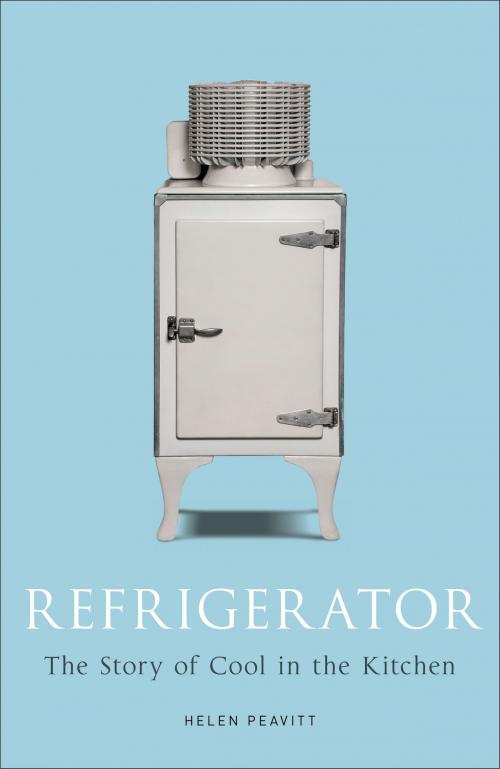| Author: | Helen Peavitt | ISBN: | 9781780237978 |
| Publisher: | Reaktion Books | Publication: | November 15, 2017 |
| Imprint: | Reaktion Books | Language: | English |
| Author: | Helen Peavitt |
| ISBN: | 9781780237978 |
| Publisher: | Reaktion Books |
| Publication: | November 15, 2017 |
| Imprint: | Reaktion Books |
| Language: | English |
From a late-night snack to a cold beer, there’s nothing that whets the appetite quite like the suctioning sound of a refrigerator being opened. In the early 1930s fewer than ten percent of US households had a mechanical refrigerator, but today they are nearly universal, the primary means by which we keep our food and drink fresh. Yet, for as ubiquitous as refrigerators are, most of us take them for granted, letting them blend into the background of our kitchens, basements, garages, and all the other places where they seem so perfectly convenient. In this book, Helen Peavitt amplifies the hum of the refrigerator in technological history, showing us just how it became such an essential appliance.
Peavitt takes us to the early closets, cabinets, and boxes into which we first started packing ice and the various things we were trying to keep cool. From there she charts the development of mechanical and chemical technologies that have led to modern-day refrigeration on both industrial and domestic scales, showing how these technologies have created a completely new method of preserving and transporting perishable goods, having a profound impact on society from the nineteenth century and on. She explores the ways the marketing of refrigerators have expressed and influenced our notions of domestic life, and she looks at how refrigeration has altered the agriculture and food industries as well as our own appetites.
Strikingly illustrated, this book offers an informative and entertaining history of an object that has radically changed—in a little over one hundred years—one of the most important things we do: eat.
From a late-night snack to a cold beer, there’s nothing that whets the appetite quite like the suctioning sound of a refrigerator being opened. In the early 1930s fewer than ten percent of US households had a mechanical refrigerator, but today they are nearly universal, the primary means by which we keep our food and drink fresh. Yet, for as ubiquitous as refrigerators are, most of us take them for granted, letting them blend into the background of our kitchens, basements, garages, and all the other places where they seem so perfectly convenient. In this book, Helen Peavitt amplifies the hum of the refrigerator in technological history, showing us just how it became such an essential appliance.
Peavitt takes us to the early closets, cabinets, and boxes into which we first started packing ice and the various things we were trying to keep cool. From there she charts the development of mechanical and chemical technologies that have led to modern-day refrigeration on both industrial and domestic scales, showing how these technologies have created a completely new method of preserving and transporting perishable goods, having a profound impact on society from the nineteenth century and on. She explores the ways the marketing of refrigerators have expressed and influenced our notions of domestic life, and she looks at how refrigeration has altered the agriculture and food industries as well as our own appetites.
Strikingly illustrated, this book offers an informative and entertaining history of an object that has radically changed—in a little over one hundred years—one of the most important things we do: eat.















